IFA 2023: Robot bartenders and electronic hospital workers a glimpse into what’s coming
Mechanical bartenders, solar pool-cleaning robots, smart prefabricated homes and dial-up fragrances aren’t just a fantasy – they’ve been unveiled at one of the world’s biggest tech fairs.
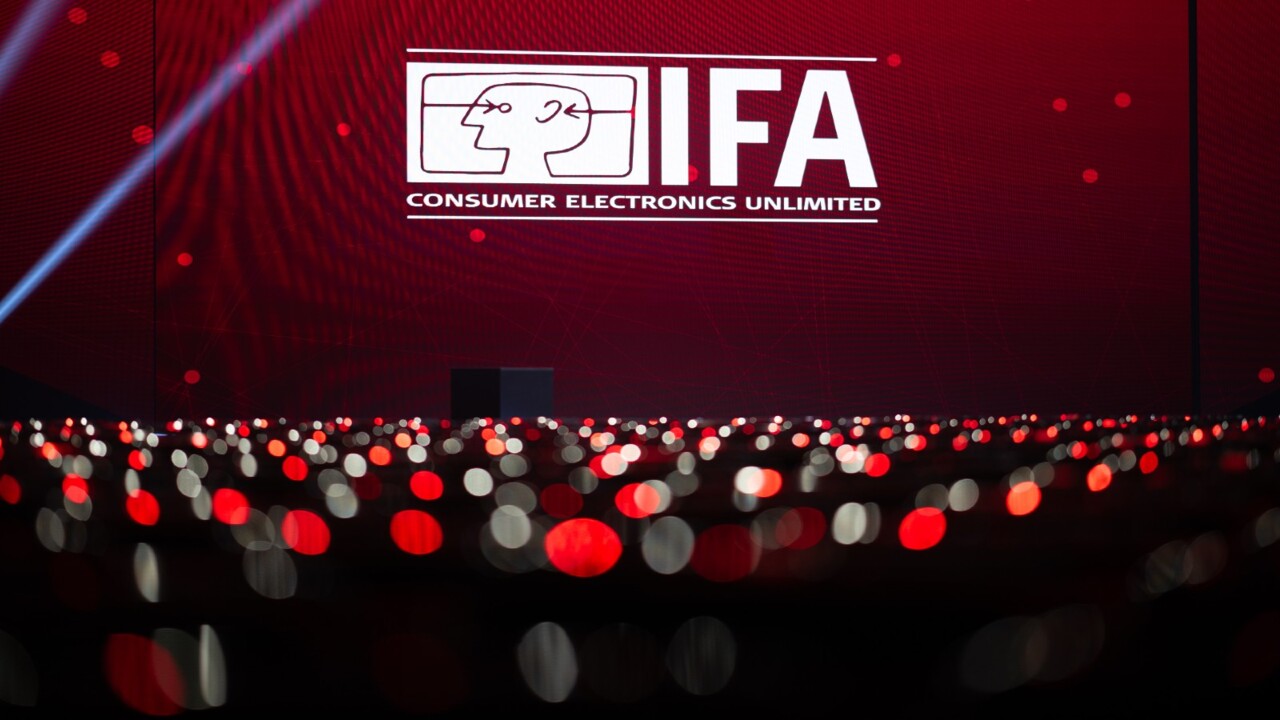
In a not-so-distant future, your next bartender might be a robot which can, at the press of a button, have a drink at your side in about 30 seconds.
The technology, built by Estonian tech firm Yanu, can make up to 100 drinks per hour and has the capacity to serve between 1000 to 1500 drinks in a single load.
The device, which resembles a small bar on a boat, was on full display at Internationale Funkausstellung (IFA) Berlin last week, drawing a plentiful crowd who each lined up for a tipple.
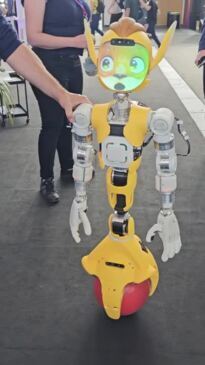
The global trade show draws, on average, 245,000 visitors per year who flock into its 27 halls that take more than an hour to walk across.
The event draws about 150,000 trade visitors each year from more than 130 countries who make up more than half of that number.
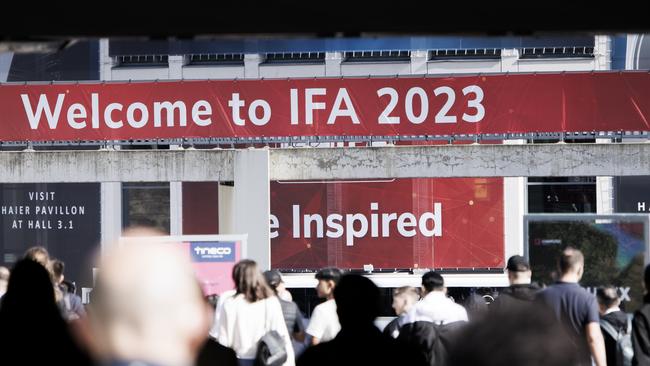
Mobile power
Among them this year was Jason Carrington, the chief executive of the Melbourne-founded mobile charging and accessory brand Cygnett.
Mr Carrington, who has attended the event since 2018, manned the Cygnett stand which was showing off a new mobile charging station that could simultaneously charge AirPods, mobile phones and a power bank.
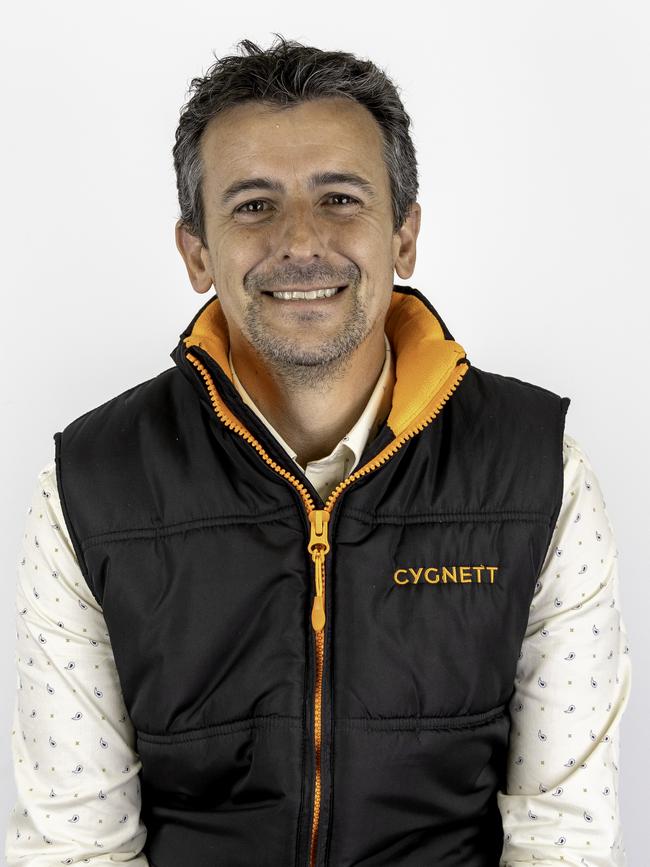
The event was a good opportunity for Australians to get their product in front of a European market, he said. But he found there was a significant amount of competition this year.
When not by the stand, what caught his eye were two things: robotic lawnmowers and smart kitchen appliances.
“Lawnmowers are an emerging category and appear to be a product that will disrupt the traditional petrol lawnmower,” he said.
“Manufacturers are looking to make traditional ‘whitegoods’ more of a feature in the kitchen and home which I think is very interesting and something I think we will see beyond just fridges like toasters, kettles, microwaves, etc.”
Hospital helper
Yanu’s AI-powered robot was one of several interactive technologies on display at IFA’s robotics hall. Robots weren’t limited to bars or backyards. One company in the space has developed an AI-powered robot called Mirokai to work in hospitals.
Francois Toussaint, of Enchanted Tools, said his company saw a future where robots would shadow nurses and doctors to carry tools and potentially help with procedures.
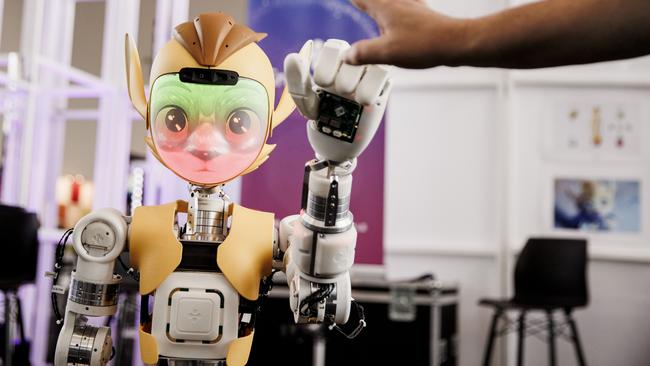
“The purpose of the robot is to do a lot smaller tasks with humans in hospitals. The idea would be to carry items or grab things like food for the nurse,” he said.
The Paris-based company has given a technological makeover to robots by providing a digital display face which constantly changes.
The use of AI for Mirokai was a little more on the entertaining side, however other brands have adopted the use of the technology in a simpler context.
One such company was Thinkware which had developed a device it called Blue Vent – described as a smart food composter which could use AI to assess the food inside and determine the best temperature to reduce the food.
“All you need to do is put the food waste inside and the AI will determine the time needed to process. You can reduce up to 95 per cent of the volume,” said Eunbee Lee, of Thinkware mobile.
For others, AI and robotics were best used for cleaning. Aiper has released a solar-powered edition of its pool cleaning robot.
The iPhone-controlled device is built to float and rid the surface of unwanted insects and other items which make their way into the pool.
Customisation
If there’s one thing electronics manufacturers have realised, it’s that addressing the desire of consumers to be different can be beneficial.
On a simple level, products such as Samsung’s Bespoke Fridge range allow customers to choose different coloured panels – or on some fridges even have their selfie as the panel.
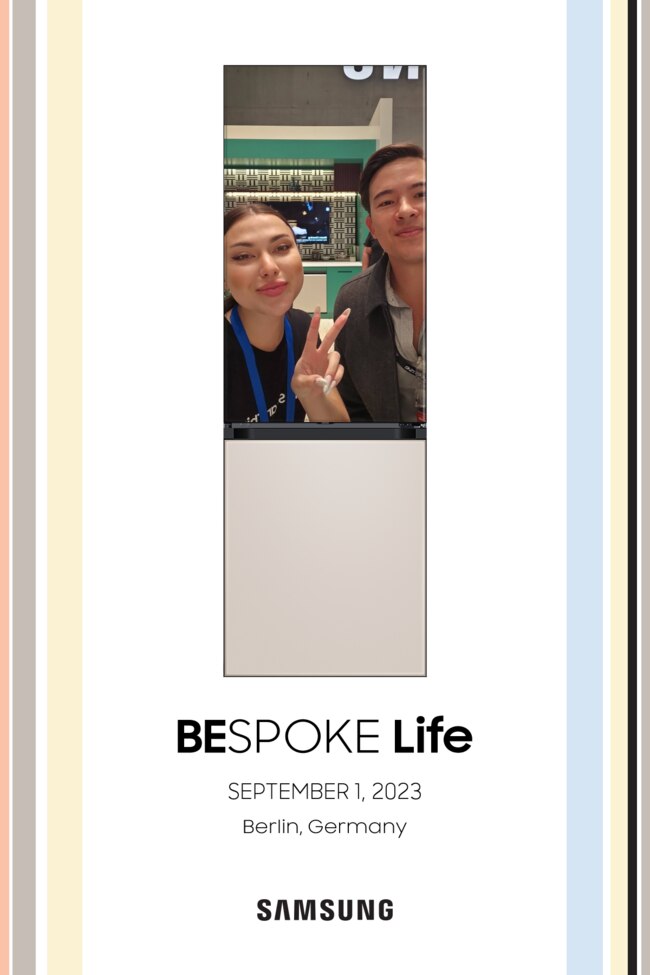
For others, it’s about developing base products which can produce multiple different outcomes, or in this case, scents.
South Korean company Deepscent’s dive into customisation includes a product it calls fragrance on demand.
“We can make up to 256 scents from just four capsules which can be remotely controlled from a smartphone,” said Deepscent manager Minyoung Kim.
The app-controlled device allows for complete customisation as well as the ability to set timers to change fragrances.
Going big
Over by the LG stand, the consumer electronics company has moved beyond manufacturing appliances and into full home development.
A recent partnership with Dammond has resulted in the development of a 37 sqm prefabricated home fitted out with LG airconditioning and an EV charging station.
LG wants to target Australia, Europe and the US with the new home but the company was yet to announce a final price, said Lee Hyang-eun, the managing director of the customer experience innovation division.
“In Korea we are looking to target people who have retired and want to live outside of major cities,” she told The Australian.
Ms Lee said the house’s lifespan was similar to a regular house but being modular allowed people to take it with them wherever they go.
The house comes with 4-kilowatt solar panels on the roof which can generate up to 15 kilowatts of energy per day, which is stored in a built-energy storage system.
The cottage joins the high-end side of the growing tiny home industry which recently emerged as a popular getaway for Australians in offbeat locations.
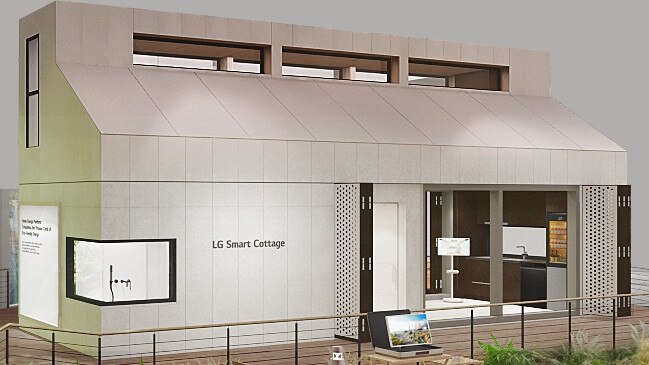
The cottage was fitted with an LG range hood, cooktop, fridge and StanByMe, which is a new portable smart monitor that can be used to monitor the cottage’s energy levels.
Joseph was a guest of Samsung in Berlin.







To join the conversation, please log in. Don't have an account? Register
Join the conversation, you are commenting as Logout